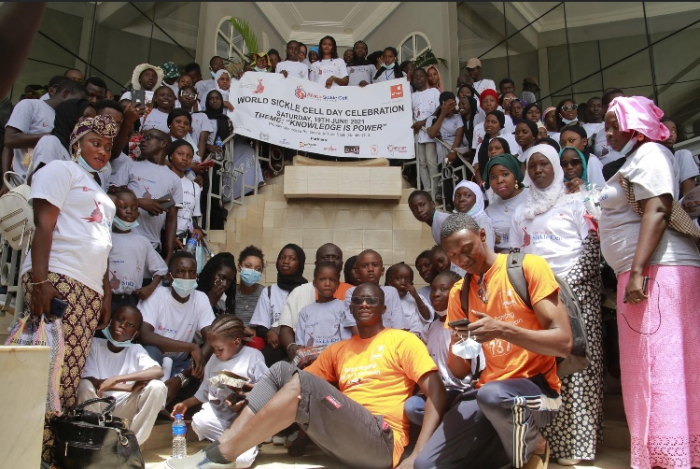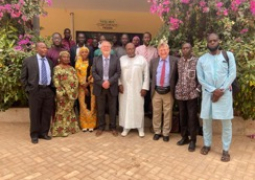
Modou Njai, who represented the Minister for Health, made this declaration recently during commemoration marking International Sickle Cell Disease Day. The event was convened by Gambia Sickle Cell Association (GSDA) in collaboration with the Ministry of Health and other stakeholders at the GTBank head office. The day is commemorated every 19th June, to call on the public to reflect their memories on the huge health and socio-economic burden on the people living with Sickle Cell Disease and how best the team can support one another in the fight against the disease.
To that end, Njai outlined the need for individuals and communities to be empowered with the requisite knowledge and skills to help them make positive discussions on their own health.
“More emphasis should be done on educating medical professionals, care givers, and associated personnel about prevention, management, surveillance, research, and resources to minimise complications related to sickle cell disease.”
The commemoration of World Sickle Cell Day (SCD), he said, is aimed to raising public awareness on sickle cell disorders. “As part of its awareness mission, World Sickle Cell Day aims to reduce stigma or discrimination faced by Sickle Cell Disease patients, who often end up feeling isolated and misunderstood, largely due to cultural barriers.”
Njai, however, hailed The Gambia Sickle Cell Association and donors for making sure that the day was commemorated.
Sickle Cell Disease, he said, is part of a non-communicable disease family, indicating that Non-Communicable Diseases (NCDs), accounts for 34% for all deaths in Gambia.
“Directly or indirectly every Gambian is affected with the burden of sickle cell and their compilation placed an unnecessary high burden on the meager resources of the individuals and health sectors.”
“Concerted action is required by different sectors in government as well as the private sector institutions, civil society, individuals, communities and organisations including the United Nations, to tackle the burden of sickle cell. We therefore need the whole system of government and the society approaches to reduce the burden of Sickle Cell Disease.” he pointed out.
Sickle cell anaemia is an inherited red blood cell disorders in which there aren’t enough healthy red blood cells to carry oxygen throughout the body. Normally the flexible, round red blood cells move easily through blood vessels. Sickle cell disease is caused by inheriting the sickle cell gene. It is not caused by anything the parents did before or during the pregnancy and does not transmit from one person to another.




